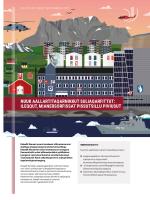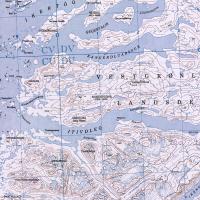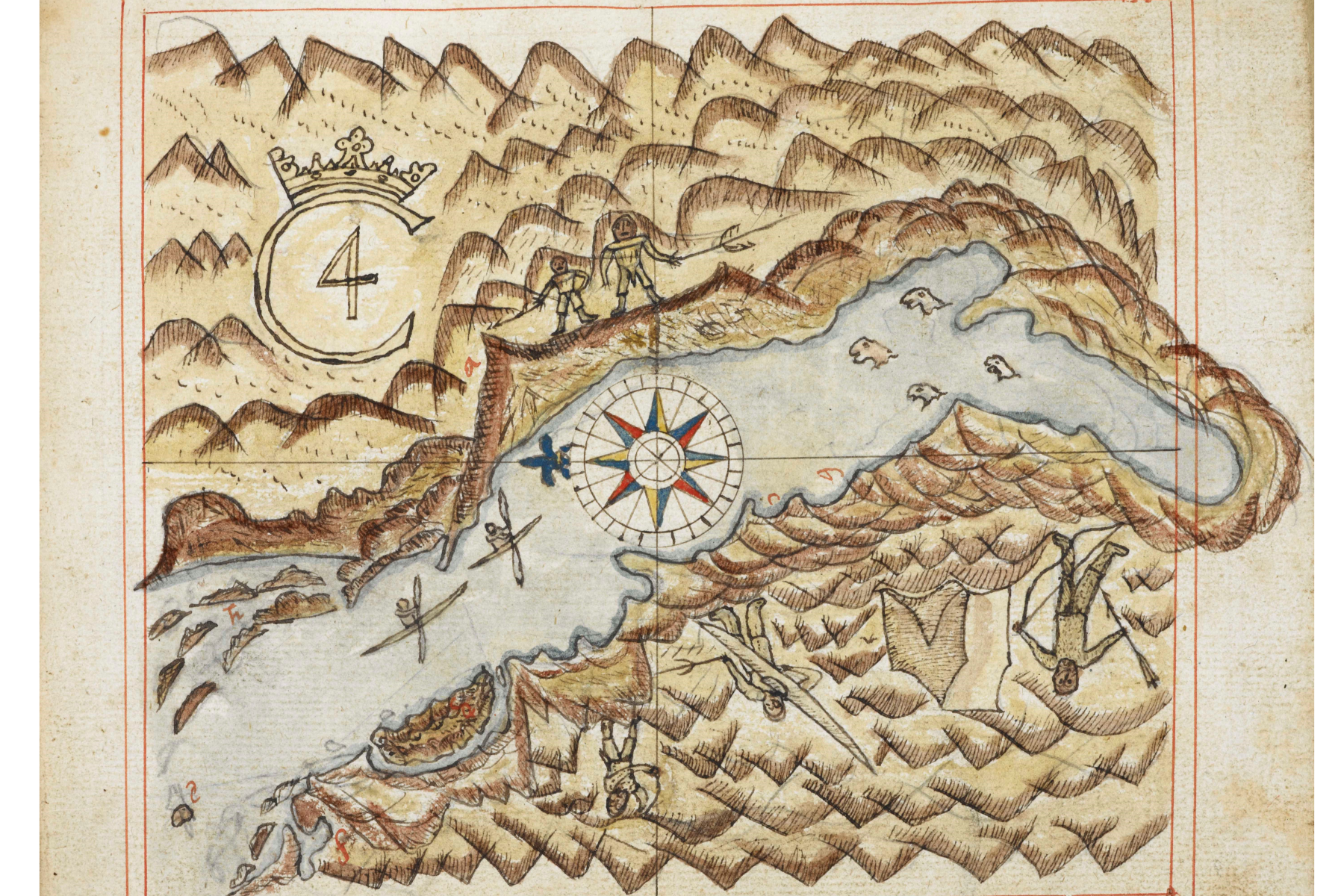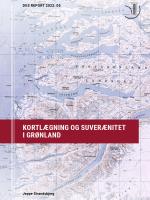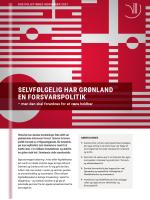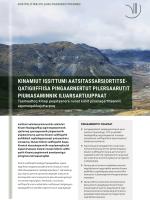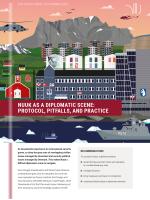Nuuk as a diplomatic scene
As Greenland’s importance for international security grows, so does the grey zone of overlapping civilian issues managed by Greenland and security political issues managed by Denmark. This makes Nuuk a difficult diplomatic scene to navigate.
To succeed in Nuuk, a diplomat needs to:
- accept the faux pas that comes with operating in a constitutional grey zone
- manage the optics
- bring manpower and brace for competition
- understand Nuuk’s place in diplomatic networks
Even though Greenlanders and Danes have shared a constitutional grey zone for decades, the zone has now expanded as Danes maintain that foreign and security policy ultimately belong in Copenhagen, while Greenlanders find that this would mean hollowing out their autonomy, since the strategic position of their island gives many domestic issues a security aspects. If outsiders want to overstep constitutional and postcolonial lines only on purpose, they need to understand both the formalities and the struggles over them. Sometimes the optics are more controversial than that which goes on backstage. At other times, one or more players keep up appearances while grinding their teeth.
Cat-and-mouse in the grey zone
Developed over time, the division of competences and decision-making procedures between Denmark and Greenland are complex. The Government of Greenland continues to push the limits by insisting that they decide whom to talk to about what. Since acting the part of a colonial oppressor might push Greenland towards declaring independence, the Danish government is reluctant to put its foot down. So, “for the sake of transparency, we invite them even where they really have no business”, according to a Danish official.
At times, diplomacy in Nuuk turns into a game of cat and mouse in the constitutional grey zone. Greenlanders occasionally suspect that Danes push important business about their island into back channels. Conversely, Greenlanders do not feel the need to invite Danes to meetings with foreign diplomats on what they consider as domestic issues, since, as one puts it, ”It’s only natural to keep it bilateral, if it’s our jurisdiction”. One Danish official counters that they need to be in such meetings as a rearguard measure, since ”they are not supposed to talk defense.”
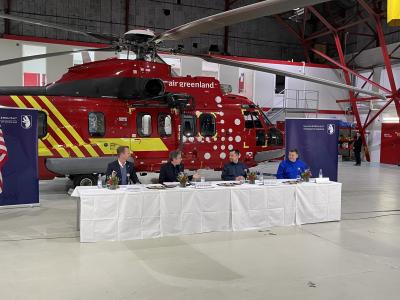
Accept faux pas
Nevertheless, Danish authorities at times find it convenient that Greenland sends up their own trial balloons, rather than reigning them in before they get shot down, in order to teach Greenland about the world’s reactions and vice versa. At other times, such maneuvers are staged in coordination between Nuuk and Copenhagen to enhance negotiating power, or conflict is ritualized in ways hard to accept for outsiders. As a foreign diplomat recalls, ”First time I was in a meeting where a Greenlandic minister said; ’We want independence’, I was shocked. The Danes didn’t even react. Had it been a French overseas territory, the meeting would have been terminated. Or there would have been a war.”
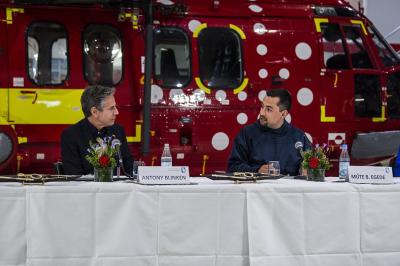
Prime Minister’s Office, Government of Greenland
Knowing explosive conflict from ritual and ritual from coordinated performance takes practice.
Foreign diplomats are bound to find themselves part of mishaps integral to these games. They soon develop strategies to approach Danes and Greenlanders. ”We believe that we have pretty good goggles allowing us to see through the fog”, one says. Sometimes, it comes down to a choice between what Greenlanders want to protect and expand their autonomy, or what the Danish constitution prescribes. Some foreign powers are more at liberty than others to overstep red lines by honest mistakes or by hiding behind faked ignorance. Either way, to be in this constitutional grey zone, accepting occasional faux pas is necessary.
This brief is based on two dozen interviews and conversations with diplomats and officials; Greenlandic, Danish, and foreign.
Some quotes have been slightly redacted to ensure anonymity. Nothing in the brief should be taken as legal opinion or a claim to have uncovered ’who really did what when’; rather, the analysis aims to show how conflicting claims about legitimacy and truth set the scene for diplomacy in Nuuk.
Manage the optics
Optics can be managed in creative ways to take sides or to make ends meet: Having three flags in a meeting room or arranging only two flagpoles. Complex speaking orders. Denmark signing a trilateral agreement which authorizes Greenland to sign a bilateral agreement. Leading guests away to sign in separate ceremonies. Photo shoots allowing different people center stage.
One confusing optic remains that the US consulate temporarily moved in with the Danish Joint Arctic Command while scouring Nuuk’s overheated real estate market for suitable office space. The landlord satisfies US’ demands for physical security and runs the most secure signal connection in town. But the arrangement also feeds into the ’cat and mouse’ games: The consulate staff asserts that they deal only with the civilian agenda devolved to Nuuk. But the consulate also does advance work for visitors from the Pentagon. So, in private, a Danish official may seek to conciliate worries over US advances to Greenland by hinting that cohabitation allows an ”eye to be kept on” the guests. Others, to the contrary, wonder if sharing the address signifies Danish submission to US designs.
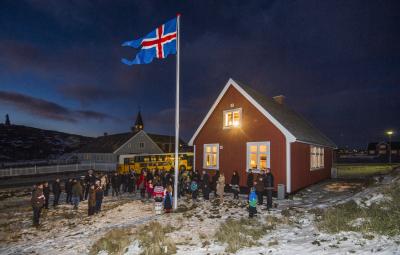
Manpower and ownership
Greenland’s mantra is ”Nothing about us without us”. However, as one diplomat notes, ”That’s easy to say, but the reach needs to be negotiated every day when the Arctic is one item among twenty on the agenda of all kinds of fora, wide and narrow.” Moreover, each new Greenlandic envoy abroad generates work back in Nuuk.
The recent American offensive consumed almost all the bandwidth of the tiny Department of Foreign Affairs. But institutionalization has redirected the offensive, as a Greenlandic diplomat notes, ”the opening of the US consulate is a relief: at least they can organize their own delegations’ itineraries”. Thus, foreign attention is redirected to government offices in charge of specific cooperation projects and programs.
But everyone in Nuuk is tied up. Every August, politicians suffer from ’delegation fatigue’ when colleagues from abroad all want to visit. Foreign journalists find it difficult to get anyone to pick up the phone. Mailboxes at the university overflow with invitations to research projects on Arctic security. Even the human resources of the operational staff at the Joint Arctic Command are strained by increasing numbers of visiting vessels to be engaged in exercises.
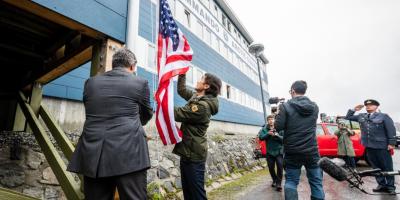
Hence, success in Nuuk involves a flexible approach to resources and ownership. One project invitation was framed by the specification that ”Equal partnership need not mean everyone contribute exactly the same. We will pay; you just need to contribute your time.” But often, time is a sparser resource than money. As one deputy minister remarked at the prospect of EU planning an office in Nuuk: ”I do not have two desk officers idly waiting to write up projects for the EU to finance.” Hence, a diplomat may lament that, ”We invite and engage, but nothing meaningful comes back.”
The job market for trilinguals with a degree is read hot. Moreover, foreign missions seeking to recruit locals need to negotiate politics: First, some candidates experience being quizzed by acquaintances and counterparts over the political signals they send by serving this or that foreign country (or even Denmark). Second, recruiters may comb through heaps of SoMe postings to understand - and try to redact - the political luggage many candidates bring, since political and professional elites inevitably overlap in tiny societies. So even if newcomers bring manpower and resources, competition for attention and ownership is tough.
Know Nuuk’s place in the networks
Nuuk is neither home to real embassies nor to mere provincial consulates. So even if Nuuk posting involves standard diplomatic craftsmanship, the standard lines of communication seldom work. A foreign diplomat in Nuuk might in principle refer to an embassy in Copenhagen, but in practice lines are often open directly from shopfloors in Nuuk to top floors in the capital back home.
Even Danish authorities have had to think out of the box when expanding their presence in Nuuk. The High Commissioner refers to the Prime Minister’s office, so the Ministry of Foreign Affairs want their own Nuuk posting even if it is formally ’domestic’. Ministry of Defense officers fly in on occasion so they ”stay in the loop” in Copenhagen. The Commander of the Joint Arctic Command must welcome top brass and naval ships to Nuuk; however, most of his diplomatic tasks involve flying (via Copenhagen) to allied capitals. Meanwhile, disregarding the new Danish liaisons in Nuuk, Greenlandic officials often prefer talking directly to their bosses in Copenhagen, as they have been used to.
It might be necessary to be present at Nuuk’s new diplomatic scene. But to be relevant takes knowing the networks into which Nuuk is spun.
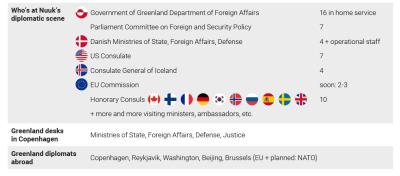
DIIS Experts


